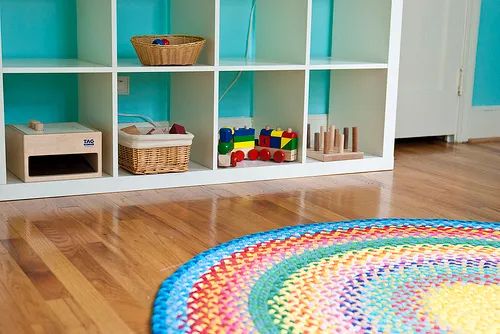Your Job as a Parent is…?
Written by Jenny Formon
In the Montessori environment, we are committed to providing children with an education for life. A huge part of our curriculum is cultivating characteristics that will benefit the child as he or she grows older. We promote responsibility, problem solving, compassion, and motivation, providing opportunities for the child to grow as a well-rounded person.
Opportunities for this growth come during worktime in the prepared environment, as well as throughout social interactions during the day. A few such occasions include:
- Only one of each type of work is provided on the shelves. By having only one of each “work” out, the child learns the concept of waiting for his turn, as well as sharing with others. It also promotes seeking other alternatives if a work is already taken. This helps to illustrate the idea of delayed gratification.

- Through the important Grace and Courtesy lessons, compassion for others is demonstrated and encouraged. How to interrupt, ask a friend to work together, and handle a conflict, are a few of the many lessons that are role-modeled throughout any given day.
- The children act as a community and the importance of each of us in the community is highlighted. When one of our friends has a success, the children offer congratulations. When one member needs help, the children provide what they can.
- The children return the works to the shelf ready for the next friend. By carefully preparing the work for the next friend, the children learn responsibility and preparation for others.
- We encourage self-serve snacking, taking care of belongings, cleaning up spills, and taking responsibility for one’s self…all natural expectations in the classroom.

Most of these practices lead towards the main goal of Montessori: fostering independence in the children. There are endless opportunities for the child to build, demonstrate, and utilize his independence. In turn, this independence helps to make him an active and important member of the classroom community. Independence and contributing to our community help to offset the sense of entitlement that children can often develop.
During the ages of 0-6 years old, the child is in the first plane of development. In this first plane, the child is self-absorbed and egocentric.
“As the child becomes more confident with their understanding of the world, they begin to have the need to search beyond their immediate realm.” ~Maria Montessori
As the child moves through this developmental plane, we demonstrate fairness and ideal morals that he may be searching for, without consciously knowing. The child can become stationary in this plane or in his moral development when he receives everything, has everything done for him, or is not expected to take responsibility.
“A 2006 study from Concordia University in Chicago found that overindulgence associated with the lack of doing chores, having too many clothes or toys, having too much freedom and not having or enforcing rules results in young adults who may not be able to handle time management, effective decision making and the ability to delay gratification.” (Million Dollar Baby…Rachel Sutherland)
Keeping the Montessori philosophy as a way of life, rather than simply an educational philosophy can help the parent to discourage this overindulgence and sense of entitlement. Rather than adopting the idea of being a “good parent” by doing difficult tasks for the child, cleaning up after him, giving him too much freedom, not holding him accountable, and catering to his every whim, utilize the Montessori philosophy in the home. Encourage your child to:
- Be responsible for his own belongings including: cleaning up his toys, hanging up his jacket, putting dirty clothes
 in a hamper, carrying his own lunch box into school.
in a hamper, carrying his own lunch box into school. - Contribute to the house: empty trash, put laundry away, set the table, clear his spot at dinner.
- Help around the house to “earn” special toys, rather than simply buying them.
- Understand the importance of helping others, whether it is with a task or contributing to those less fortunate.
- Entertain himself with simple toys and books, rather than utilizing technology and electronics all the time.
- Make mistakes and help him learn from those mistakes. A little bit of struggle with a task or in finding a solution will help your child take more pride in his accomplishments.

Some of these activities may be met with resistance by your child. Especially at a young age, work can often be met with resistance on your child’s part. But with consistency and follow-through, along with the knowledge that right now you are helping your child become the responsible adult he will be, you can remain strong in your requests.
“Your job as a parent is not to make your children happy,” explains Hanson (Denise Hanson, clinical psychologist at Presbyterian Rehab Center). “If they’re happy along the way, great. Your job is to teach your children skills so that they can go out in the world, make a living, make a difference. You need to give them lots of love, hold them responsible, put a roof over their head. But if you’re doing everything just to make them happy, then you’re not functioning in a parental role.”
Raising children can be a difficult and daunting task, but one that can be easier with the help of others. Remember, that Montessori is a way of life and carry that into the home. Examine what you ask of your child at home and see if it falls in line with the Montessori philosophy. Are you helping him learn responsibility, compassion, independence?
“All our handling of the child will bear fruit, not only at the moment, but in the adult they are destined to become.” ~Maria Montessori
 Jenny Formon has been working at Charlotte Montessori since 1995. She enjoys being in the classroom as well as sharing the Montessori philosophy with others. Jenny writes with her fellow teachers for her school’s blog at: http://www.charlottemontessori.com/blog/.
Jenny Formon has been working at Charlotte Montessori since 1995. She enjoys being in the classroom as well as sharing the Montessori philosophy with others. Jenny writes with her fellow teachers for her school’s blog at: http://www.charlottemontessori.com/blog/.




















